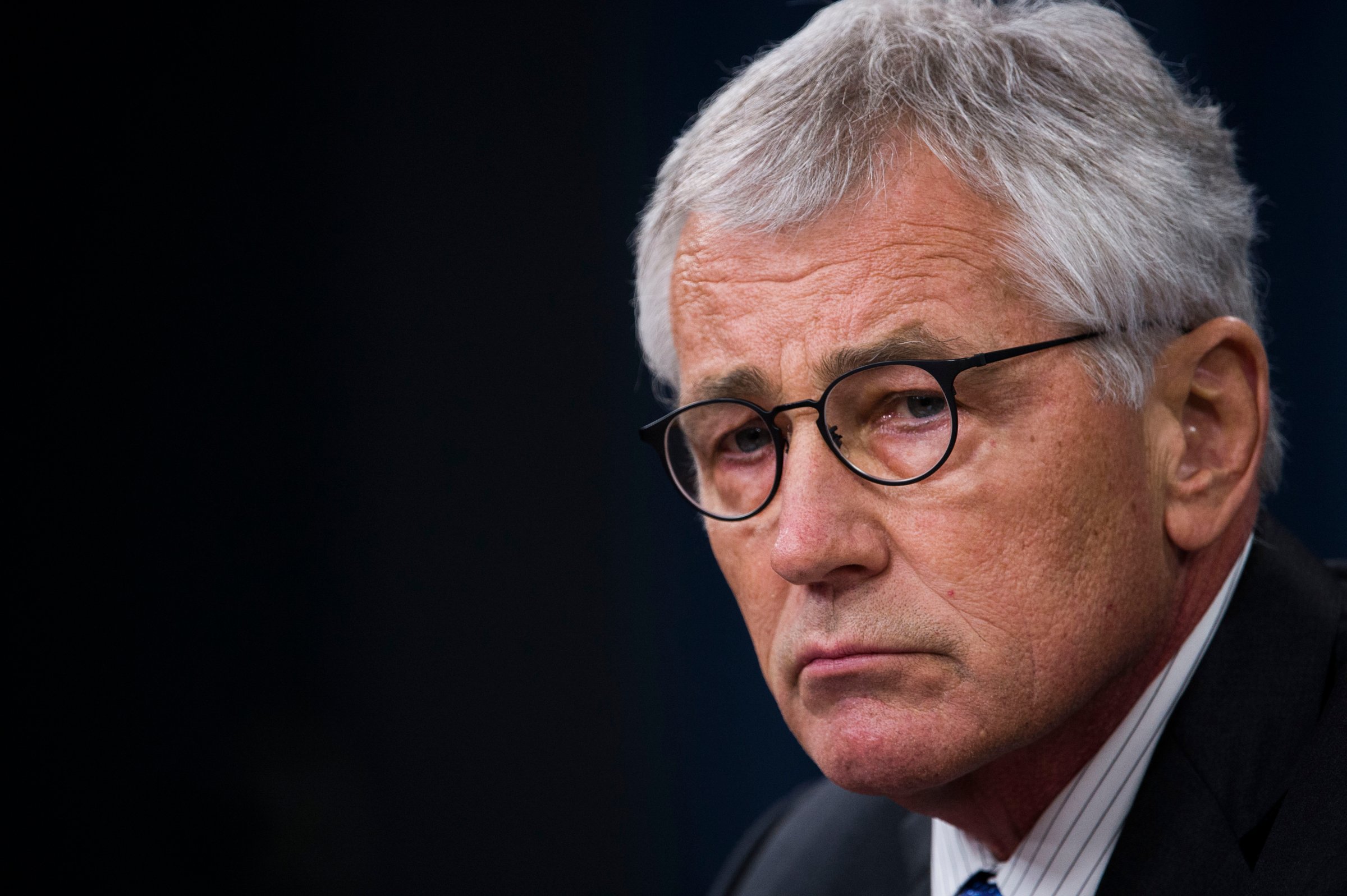
President Barack Obama declared in August 2011 that Syrian leader Bashar Assad must “step aside” for the good of his country after his forces had killed nearly 2,000 fellow citizens. More than three years later, with Assad still in power, the Syrian civil war has killed some 200,000 people and given Islamic extremists territory to occupy. That has led Defense Secretary Chuck Hagel to warn the White House that the U.S. has to stop ignoring the Syrian dictator.
In a two-page memo to National Security Adviser Susan Rice two weeks ago, Hagel said the lack of clarity is complicating U.S. efforts to combat the militant group Islamic State in Iraq and Greater Syria, Pentagon officials say. The memo’s existence was first reported in the New York Times on Thursday.
It’s no secret that there’s much teeth-gnashing inside the Pentagon because of a belief that U.S.-led air strikes against ISIS have transformed the U.S. military into a Syrian air force, of sorts. And after more than three years of increasing violence—including Assad’s brazen use of chemical weapons against his own people that Obama vainly warned was a “red line” that he’d better not cross—frustration is mounting among the U.S. military.
They say plans to train 5,000 “moderate”—i.e., non-ISIS—Syrian rebels annually to fight the militants is complicated by the civil war inside Syria, even if much of the training is slated to take place outside the country. So long as Assad remains in power, they fear the moderate rebels’ attention could be diverted from fighting ISIS to battling Assad.
Hagel wouldn’t say much about his concerns. “This is a complicated issue,” he told reporters Thursday. “We are constantly assessing and reassessing and adapting to the realities of what is the best approach.”
Such internal debates are the “responsibility of any leader,” he added. “And because we are a significant element of this issue, we owe the President and we owe the National Security Council our best thinking on this. And it has to be honest and it has to be direct.”
Unsurprisingly, a White House spokesman agreed. “The President wants the unvarnished opinion of every member of his national-security team,” Josh Earnest told CNN on Friday. “That’s the way he thinks we are going to reach the best outcomes.”
More Must-Reads from TIME
- Introducing the 2024 TIME100 Next
- The Reinvention of J.D. Vance
- How to Survive Election Season Without Losing Your Mind
- Welcome to the Golden Age of Scams
- Did the Pandemic Break Our Brains?
- The Many Lives of Jack Antonoff
- 33 True Crime Documentaries That Shaped the Genre
- Why Gut Health Issues Are More Common in Women
Contact us at letters@time.com